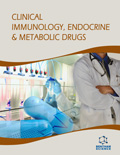Abstract
Some dietary carbohydrates are quite healthy when consumed as part of a balanced diet, while others can be toxic, especially if overconsumed. They can be simple sugars, oligo- or polysachharides. Simple sugars like fructose, glucose and sucrose have a high glycemic index. Polysaccharides are compounds consisting of a large number of monosaccharides linked glycosidically and have a low glycemic index. Water-soluble polysaccharides and polysaccharide-protein complexes can enhance and/or activate immune responses in macrophages and the complement system. For example, six kinds of α-galactosylceramides (α-GalCers) from the marine sponge Agelas mauritianus have potent anti-tumor activities. Their discovery led to the development of a synthetic α -GalCer for treating autoimmune diseases and cancer. It activates invariant natural killer T-cells (iNKTs) by binding to CD1 receptors on antigen-presenting cells. There are also esters made from reactions between fatty acids and glucose, called fatty acid glycosides. Several of these have been isolated from the popular fruit called noni (Morinda citrifolia). They have been shown to inhibit inflammation and activate cannabinoid 2 (CB2), but inhibit cannabinoid 1 (CB1) receptors, while decreasing the production of IL-4 and increasing the production of IFN-γ. Many other fatty acid glycosides have been tentatively identified in ten out of ten other fruits that were analyzed. So, fatty acid glycosides could be an important, but underappreciated part of the nutritive value and health effects of many fruits.
Keywords: Fatty acid glycoside, galactolipids, glycolipids, glycans, immunomodulatory, polysaccharides.
Graphical Abstract
 44
44

